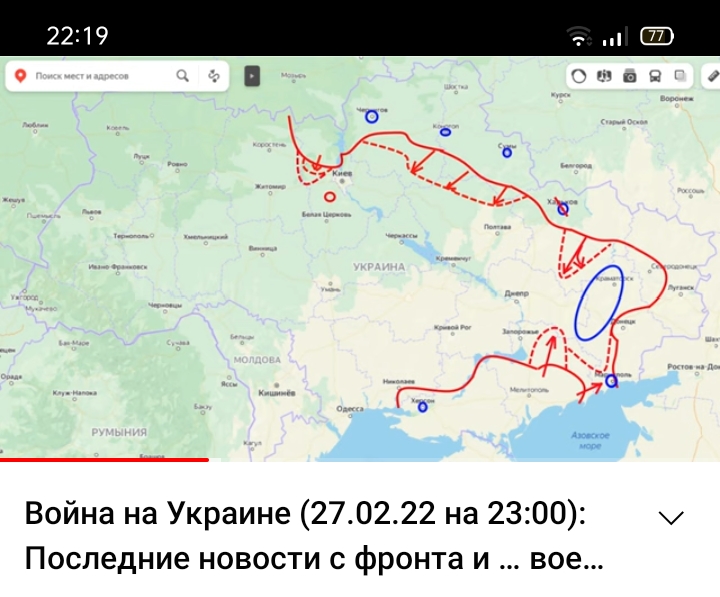You are using an out of date browser. It may not display this or other websites correctly.
You should upgrade or use an alternative browser.
You should upgrade or use an alternative browser.
Ukrainian War Developments
- Thread starter james smith esq
- Start date
- Status
- Not open for further replies.
I suspect it's cover to let western pilots fly in Ukraine. There's no way a Ukrainian pilot who has only flown 70s era MiGs can suddenly operate a western jet.
Poland, Bulgaria, and Czechia all have Mig-29s. Bulgaria has su-25s, too.
modern jets are FBW, they practically fly themselves.... there is no dogfighting, jets are now just missiles platforms, etcI suspect it's cover to let western pilots fly in Ukraine. There's no way a Ukrainian pilot who has only flown 70s era MiGs can suddenly operate a western jet.
they just have to make sure to give the Ukraine pilots the right activation codes every 24 hours but Elon Musk Starlink is helping with that
Don't expect any help when the US pull the same stunt on South Korea then. And then you will be surrounded on all sides basically. With a pliable regime in Russia. Or maybe the Siberian nation owned by the US. One of the US Presidents (Woodrow Wilson?) said Siberia had too many resources to be something Russia should have.Why would anyone cheerlead a conflict so far away and not important to their core interest? Russia didn't openly support SCS artificial islands, and China will not openly support invasion of Ukraine, that is only fair and reasonable. China owes Russia nothing except positive neutrality and China expects the same in return for Taiwan/SCS.
There are all kinds of approaches including laser designators, hunter killer teams, etc.....I have one question
these destroyed columns of Russian armour are being targeted how? from air ?
that convoy 15 vehicles outside North of Kharkov was done by what?
RPG, ATGM or artillery ?
how are Ukrainians getting so close to inflict such damage on armoured columns miles outside the city
|
It is consolidating West for the next war.Does Russia openly support China's territorial claims or construction of artificial islands in South China Sea?
Why would anyone cheerlead a conflict so far away and not important to their core interest? Russia didn't openly support SCS artificial islands, and China will not openly support invasion of Ukraine, that is only fair and reasonable. China owes Russia nothing except positive neutrality and China expects the same in return for SCS.
they want to buy things to deprive others of it.
asif iqbal
Banned Idiot
Russian needs to protect those columns of armour
they need air support from attack helicopter
who on earth sends out armoured columns like this without air cover?
just watched a video on Twitter very graphic to post here all soldiers burnt to a crisp and Frozen with burns
its too much and this needs to stop now
peace talks tonight better end this violence
they need air support from attack helicopter
who on earth sends out armoured columns like this without air cover?
just watched a video on Twitter very graphic to post here all soldiers burnt to a crisp and Frozen with burns
its too much and this needs to stop now
peace talks tonight better end this violence
To play the devil's advocate, the same was said about Danzig and some dude getting shot in the Balkans.
All the 'devil' is gonna do here, is what he's been doing so far: Using Ukraine as cannon fodder.
Despite the social media rhetoric, the reality hasn't changed.
Ukraine has no chance, and no one is coming to help it.
All its supposed 'allies' will huff and puff from a distance, while Russian forces roll onwards.
Ukraine's fall is inevitable. This is a universally accepted fact (even the US still keeps reiterating this.)
The only thing Ukraine can do is "talk" with Russia to end this on Russia's terms, period.
- Status
- Not open for further replies.

